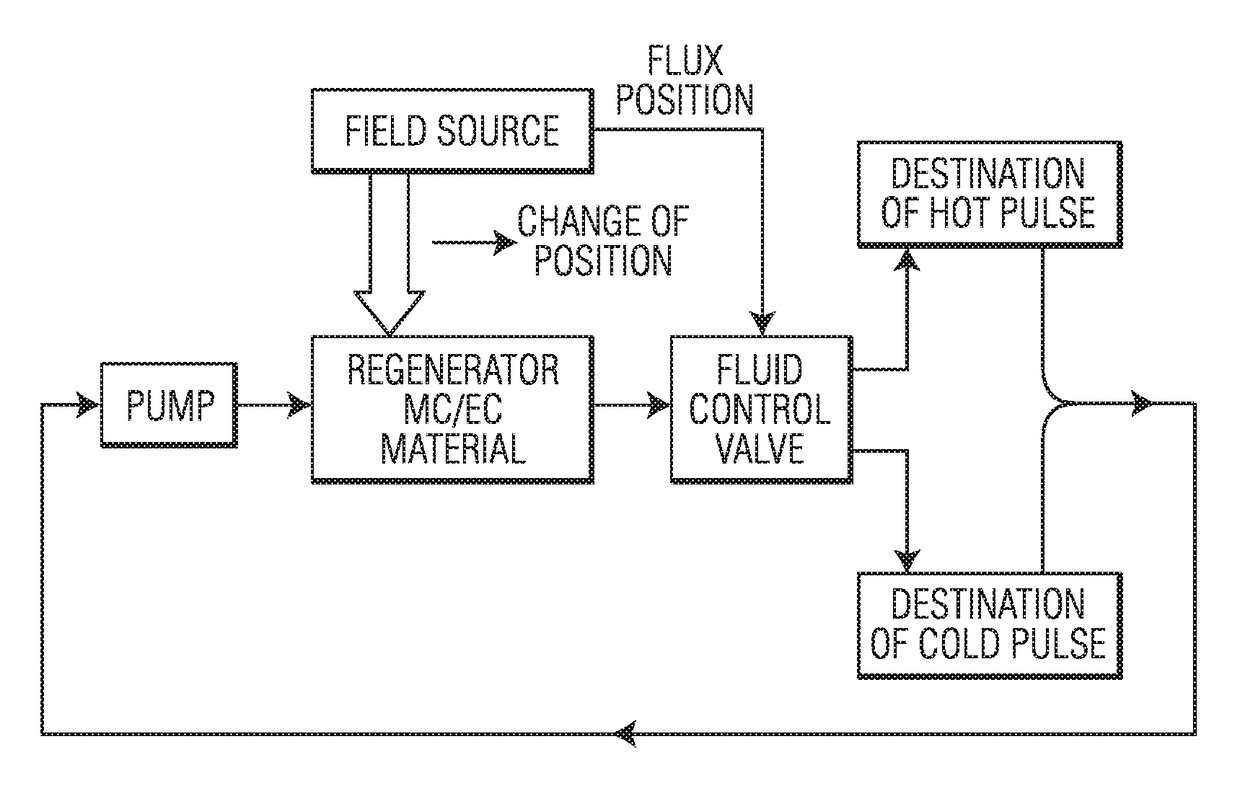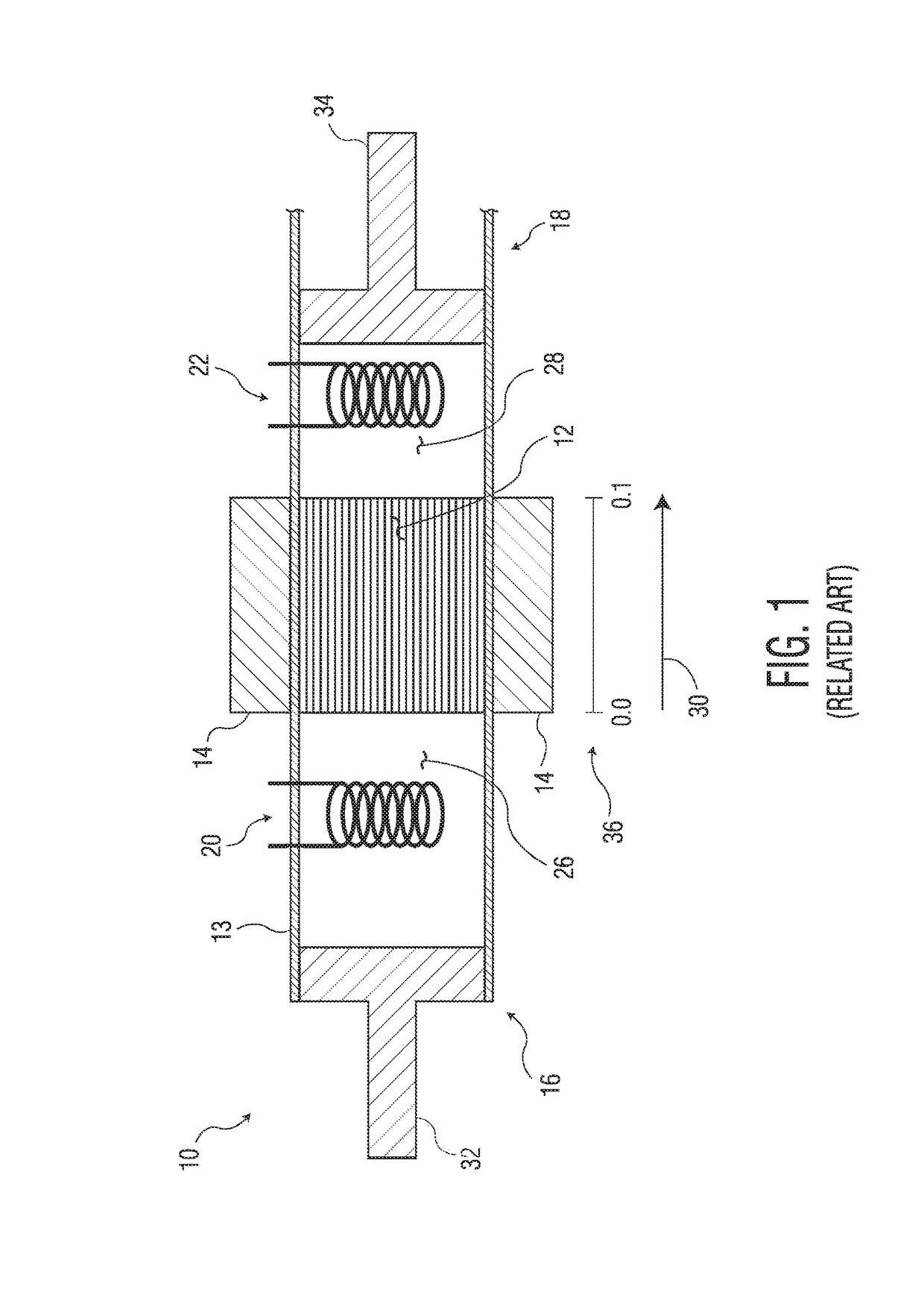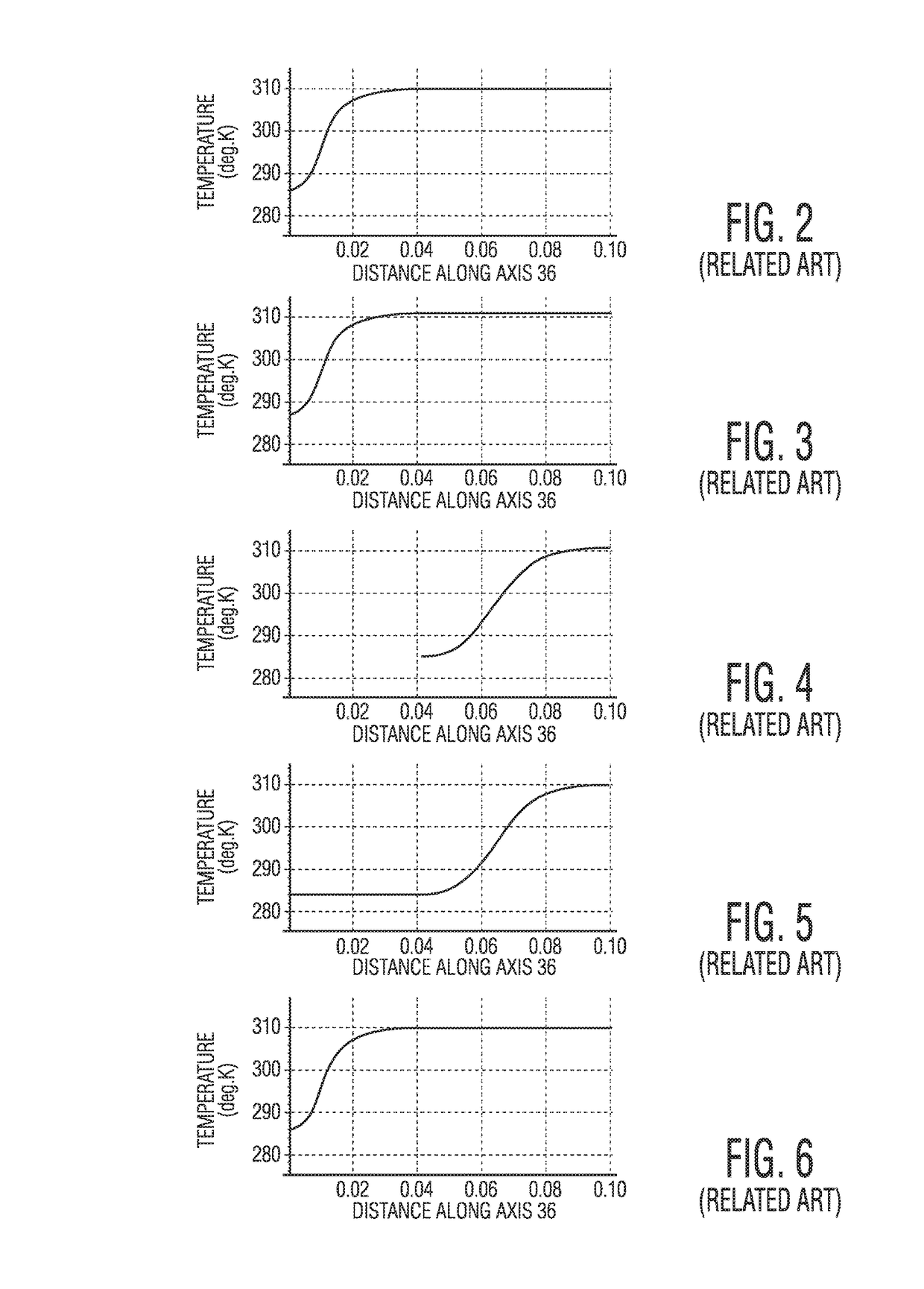Flow-synchronous field motion refrigeration
a technology of flow-synchronous field and refrigeration, which is applied in the direction of machine operation mode, heat pump, lighting and heating apparatus, etc., can solve the problems of reducing the range of useful temperature spans, reducing the use of different designs so far to practice for mce, and requiring a large physical magnetic field to raise or lower the entire temperature profile. , to achieve the effect of improving heat transfer, improving the useful temperature span, and reducing the physical size of the magn
- Summary
- Abstract
- Description
- Claims
- Application Information
AI Technical Summary
Benefits of technology
Problems solved by technology
Method used
Image
Examples
example 1
Model the Conventional Approach of Non-Synchronous Flow
[0039]In this case, we first raise the temperature across the bed by applying the magnetic field, then pump cold fluid in from the cold end to the hot end, then lower the temperature by removing the magnetic field, then pump fluid back from the hot end to the cold end.
[0040]In this baseline case, 287 joules are removed from the cold side, and 294 joules are discharged at the hot side per cycle (difference is 7 joules). This difference may represent the minimum work required to be done by heat pump in terms of mechanical work to move the magnet, though some experimental verification of this assumption is needed to confirm it. Note that the amount of heat transferred per cycle is much higher for this zero-differential case than for the 25 degree-differential case modeled in FIG. 2 through FIG. 6, in which only 94 joules were transferred.
[0041]There are several variables to consider: (1) Ratio of heat capacity of fluid to heat capa...
example 2
Forward Bias, Fluid Moves Faster than Field
[0043]In this case, a hot zone emerges from the leading edge of the moving magnet, with the temperature of the hot zone growing progressively higher as the motion proceeds. There is a limit to the height of the hot zone, which is a function both of the relative velocity of the fluid and the magnet, and the heat capacity ratio of the fluid to the regenerator. The trailing cold zone moves forward with the magnet as well, so the fluid gets progressively colder in the cold zone as the motion proceeds. Forward bias produces the sharpest peaks, and the highest absolute values of temperature change from low to high. It is possible to push fluid so quickly, that the cold side temperature “breaks through” the leading edge of the moving magnetic field, a condition that diminishes overall efficiency. In our forward bias example, the velocity of the magnet is 75% of the fluid velocity, and the cold tail pushes about ⅓ of the distance from the trailing ...
example 3
Neutral Bias, Fluid Moves at Same Speed as Field
[0045]This is the limiting case of forward bias theoretically, but in fact one begins to observe behavior associated with reverse bias synchronization due to the thermal mass of the regenerator and heat transfer fluid. We selected a fluid to regenerator volume ratio of 3:1 (75% porosity) for this model case. A greater ratio of fluid heat capacity to regenerator heat capacity produces less stretching of the hot pulse and of the cold pulse as the field moves across the AMR bed.
[0046]In this neutral bias case, the cold side heat transfer is 283.6 joules, and the hot side heat transfer is 295.6 joules (difference is 12 joules).
[0047]It is interesting to note that the plateau height for the temperature difference attained in the neutral bias case is almost exactly equal to the isentropic temperature change for the 290 degree starting temperature (delta T is 3.2° K).
PUM
 Login to View More
Login to View More Abstract
Description
Claims
Application Information
 Login to View More
Login to View More - R&D
- Intellectual Property
- Life Sciences
- Materials
- Tech Scout
- Unparalleled Data Quality
- Higher Quality Content
- 60% Fewer Hallucinations
Browse by: Latest US Patents, China's latest patents, Technical Efficacy Thesaurus, Application Domain, Technology Topic, Popular Technical Reports.
© 2025 PatSnap. All rights reserved.Legal|Privacy policy|Modern Slavery Act Transparency Statement|Sitemap|About US| Contact US: help@patsnap.com



